Pursuit of Play, volume 4: Fun? Fun!
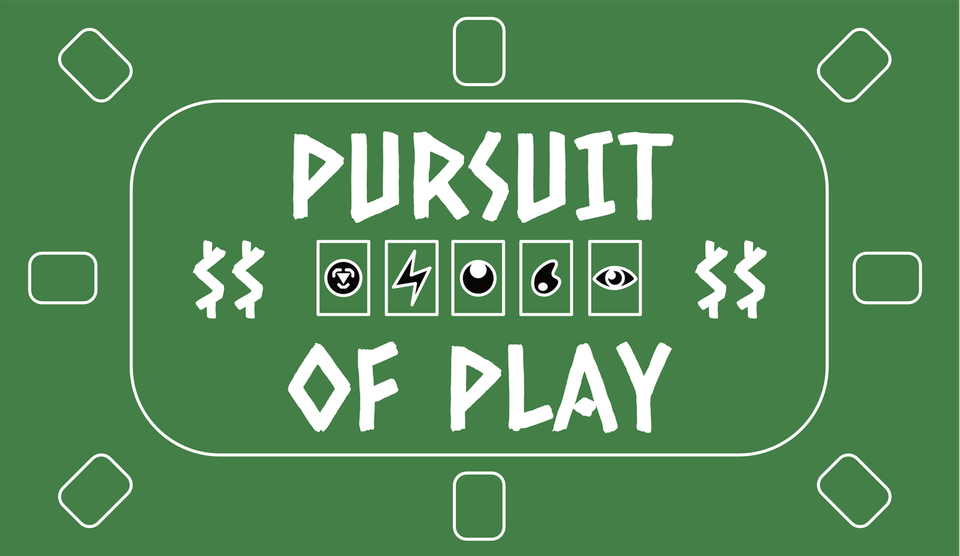
Welcome back to life on the European Pokemon circuit. As of this edition, we have 3 Regional Championships under our belt with another 5 ahead of us along with the European International Championship and - hopefully - the World Championship[1]. This time around, for the first time ever, all of us were playing the exact same 60 cards as we played in the previous tournament. I’m not sure this will ever happen again.
As always, if you want to catch up on previous editions, they’re here.
And, if you find yourself thinking, “Actually, I want more writing about Pokemon in my life. I want the depth cuts and the stuff that is too obscure even for this very obscure newsletter” then what you want is Nerd Notes - for $5 a month, you get an additional installment every month that goes way too deep down the rabbit hole. Last month, I tested out a bizarre deck that finished in the top 16 at a regional tournament, looked at why LLMs don’t work for Pokemon, and gave some backstory on my recent podcast appearance.
The Pokemon Update
My first match at Gdansk was unpleasant, to say the least. By far the worst performance of the year so far. Not only did I lose and lose quickly, I never even got off an attack. Just complete and utter misery. My next match didn’t get much better as I was on the receiving end of the medicine I usually give: my opponent figured out how to defang my attack rather than vice versa. Another match over before it had barely even begun.
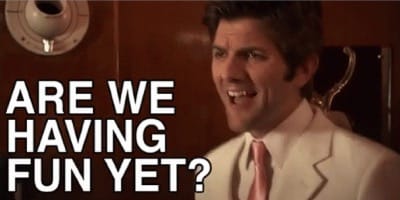
I gave serious consideration to just packing it in right then and there, saying “hey, it’s not my day. Let’s move on.” Technically, I still had a shot at advancing to day 2 if I just won out all 6 of my remaining matches. Technically, as Tommy reminded me, I could even finish in the top 256 if I did so.
I wasn’t buying it, but I also didn’t drop.
But why? We tell ourselves that we play for fun, yet I don’t think I’m alone in persisting at a moment when it isn’t fun at all. I can think of a range of reasons from the virtuous[2] to the deliberate[3] to the downright depressing[4]. For some people who excel in a playful activity, there comes a point when they have to make an important decision about whether it’s still just for fun or whether it might be something more serious. This also explains a good bit about why we marvel at the people at the very top of their game who clearly take it very seriously and who still channel the joy of play[5] .
And round 3 kind of sort of started to turn a corner…I won the first game, he won the second, and then we ran out of time in the third. We had agreed before the match started that in such a situation, whoever was behind on prize cards would concede the match to the other person - and as the devoted reader knows, I play a deck that lives for the endgame. So I took the loss and let him continue to chase the dream. I never really had any hopes for making day 2, but if I had they would have been definitively squandered.
Still I didn’t drop. There was nothing to keep playing for, but I chose to keep playing.
And in round 4 I ran into Dino. On first impression, Dino looked tough. He was a stocky, 50-something German with a shaved head and a formidable mustache. As he sat down he gulped down the last dregs of a cup of coffee…and promptly began to gush like a small child at Disneyland:
“This is my first tournament ever…I just got into the game, and I just knew I needed to come and play, and I haven’t won yet today but I’ve learned so much and it’s been so much fun.”
And sitting across from Dino I felt the fun come all the way back - it was the only reason either one of us should have been sitting at that table. We had no dreams of glory, just room for good vibes. Again, I took the first game as he was completely unfamiliar with my deck. In a squeaker, he took the second game. With time running down, I explained to him that we could make a similar agreement regarding the third game in which one of us would concede to the other based on game state, with the alternative that we could just take a draw - allowing him to score his first ever point in a Pokemon tournament. His eyes lit up at that, and he decided: if it’s a tie, it’s a tie. Guess what - it was a tie.
As we stood up from the table, his eyes were aglow, and he said to me, “There’s no way I’m dropping. This is the best way to learn the game, so I’m playing all the way to the end today.”
So I didn’t drop either.
And then round 5 turned into an exercise in absurdity, as both my opponent and I found ourselves in weird situations that we hadn’t anticipated and had to do all kinds of strange tricks to make desperate attempts to stay alive…and they kept on working out for both of us. One person would build up a big hand of cards, and then the other person would play a disruption card that required them to shuffle that hand back into their deck; then that person would build up a big hand, and then the other would disrupt it[6]. On and on for far longer than I’ve ever experienced before. Every time, we both laughed out loud - regardless of whether we were the disruptor or the disruptee. Shortly after he won the first game, time ran out…so the win was his.
And that was when I decided to drop. What had started out in abject misery had managed to venture into a bit of joy, a bit of delight, a bit of good humor - and that was good enough for me.
Meanwhile…
Not much to say about Tommy’s tournament. They played the same 60 cards as last time, but fared a bit worse - failing to take points for the first time this season. Tommy shrugged it off, “We expected this to happen even earlier, so my season is still on track."
Nate’s tournament, on the other hand was going in the opposite direction of mine. After a slow start of 1 win, 1 loss, and 1 draw after 3 rounds, Nate went undefeated the rest of the day and qualified for day 2. If he won both of his matches on Sunday morning, he’d make his first ever top 8[7].
We returned to the venue bright & early on Sunday, I helped Nate get set up, and then - because Pokemon is really pretty crap as a spectator sport - I just took a walk around the perimeter of the convention center. I felt that pit in my stomach that is some strange combination of anxiety, nerves, and dread. About halfway around my second lap, I could hear that voice in my head: “Is this fun for you? Why are you even doing this?” The voice was not wrong…I hate that anxious feeling and have to work very, very hard to find some sense of peace in those moments; I know that in the first couple days after a tournament - even just as a parental spectator - I will feel my nervous system depleted. I do not enjoy it. I could choose indifference and just let the kids have their hobby, acting as a hands off parent. I don’t do it. The extent to which I have given myself over to it at this point is kind of ludicrous: I find myself watching deck build & playtest YouTube videos, and agonizing over misplays I make when practicing online. On a recent business trip to San Francisco, I registered to play in a local tournament. There were no children with me. All of this, and I would just remind you that this is not a thing I am good at…but it has entered into my bloodstream, and I can’t and I don’t want to get rid of it.
Somewhere around lap 4 I peeked over and noticed that Nate seemed to be in the lead in his final round before the top cut, and as I passed by on lap 6 or so I saw him jump up from his seat, shake hands with his opponent, and exuberantly pump his fist.
Nate made his first top 8. The first one of us this season to accomplish one of our goals. Epic.
In the top 8 matchup, he immediately ran into his friend Joshua who is currently the top ranked junior in Europe. There were no secrets between the 2 of them - they both knew what the other was playing and were ready for the matchup. Nate lost. But there were no hard feelings - he finished 7th out of 109 players. He was thrilled; I was happy. But I could also hear Logan Roy’s voice in the back of my mind.
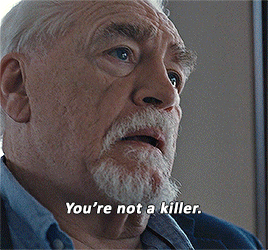
Because, really, I'm not. And maybe there’s an experiment in the future: what would it look like to choose to play with that killer instinct?
I think you should read: Dispatches From The Republic of Anhedonia
After my first two rounds of utter disaster, I found myself wondering, “why do we keep playing when we’re not having fun?” On the other side of it, I see that I was nurturing hope for a turnaround in my spirits, but it also struck me that it was a rare situation to be doing something ostensibly playful but not experiencing it as play.
And all I could think about was this longform series of articles that the Pulitzer Prize winning author Colson Whitehead wrote for the now defunct sports publication Grantland, Dispatches From The Republic of Anhedonia - his recounting of training for and eventually playing in the World Series of Poker, and his experience of persisting in this pursuit even as he felt dead inside and incapable of happiness or joy. It is much darker, much more insightful, and - of course - much better written than this newsletter.

I was in tune with decay, I had it down. What I needed to do was get in touch with decay’s opposing force, whatever that thing is that gets us out of bed each day and keeps us a few steps ahead of the Wave: the hope of some good cards next hand.
For the citizens of the Republic of Anhedonia, luck is merely the temporary state of outrunning your impending disasters. But sometimes my countrymen and I have to look beyond our native truths and pray. Even a temporary respite from the usual level of soul-snuffing drudgery is a blessing. Luck would have to do. You need skill in poker, but you also need the puppet master to be in a good mood every once in a while. I didn’t have much skill, but I’d prepared the best I could.
Reflections on Play
A few weeks before this tournament, I was running a workshop for one of my clients the point of which was that in product development we’re constantly making decisions with imperfect knowledge…so I had everyone play some Texas Hold ‘Em poker because it lends itself so well to the exercise with clear decision points, each of which coming after a bit more information is revealed.
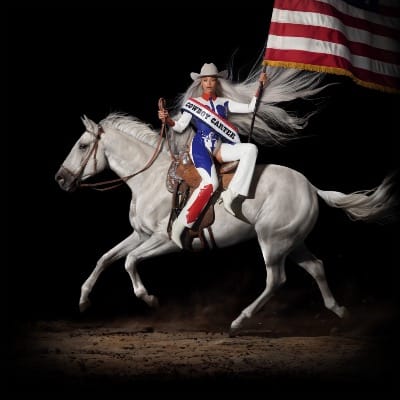
The basic structure was this:
- everyone either got dealt in or stood over the shoulder of someone who was playing.
- a dealer dealt out the first 2 cards.
- we paused, and I asked everyone to consider: what do they know, what don’t they know, and what do they think they should do.
- we went around the table and had every player bet.
- the dealer dealt out the first 3 face up cards (the flop for the Poker nerds out there), and I again had them answer the same 3 questions and place their bets. I didn’t prompt them to keep doing those same questions with every bet that was placed…but we could have.
- And then we did the same for the next card (the turn), and then the final one (the river).
You see how it works, right? With every decision that one player makes, all of the other players have more information to work with to update their decision model. Over the course of many hands against the same players, that decision model is updating not just with the purely rational probabilities of success, but also the more qualitative ones such as the likelihood that another player is bluffing. A game like hold ‘em is an exercise in a simplicity that masks incredible complication because of all the social dynamics among a full table of players. You have to play the players as much as you play the cards, and you have to make frequent decisions with incomplete information.
A game dynamic that both Pokemon & Poker share is “the fog of war.” I mentioned this briefly in The Debut, but put simply the fog of war is the fact that there is a lot about the game and especially about the other player’s capabilities that are unknown and unknowable. What I find fascinating is how the two games are using this dynamic to somewhat different ends. At its foundation, fog of war functions on two fronts:
- the opacity of the other player’s [8] intentions: because you don’t know what resources the other player has available to them, you can’t know for certain what they are able to do.
- the opacity of the actual resources: because you don’t know what resources will be made available to you and to the other player in the future.
In hold ‘em, the former - intentions - is the more significant one because the latter is more constrained. Every player has 7 total cards available to them, only 2 of which they uniquely can use; more than that, those 2 unique cards have been known since the very beginning of the game. Poker is a game where the probabilities can always be calculated - not necessarily with ease but still without the need for a calculator or other tool if the player is dedicated enough. And that’s why the social dynamics are so interesting, because not everyone at the table is necessarily calculating the probabilities correctly and even if they are they aren’t necessarily representing their actual position correctly.
Pokemon is the opposite. While the other player’s intentions may not be fully transparent, a good player can deduce it with relative ease against common meta decks…but they won’t necessarily know the exact 60 cards, and everyone tries to sneak some unexpected spice into their decks that make surprises possible. On the other hand, each player is working with 60 cards - this is 8 more than the total number of cards in a full poker deck that all players around a poker table are working from. Getting the right combination of cards at the right time is the name of the game in Pokemon.
Both games use the fog of war, but in poker it makes play complicated, whereas in Pokemon it makes play complex.
I think you should listen to: Against The Rules
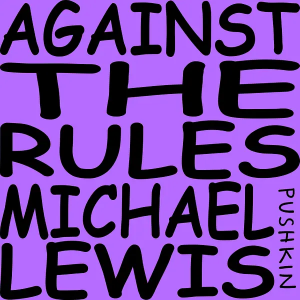
It should come as no surprise that I think the current season of Against The Rules is outstanding because I think that every season of Against The Rules has been outstanding, because I think that everything Michael Lewis has ever done has been outstanding (for the record: I do not count the film of the Blindside as a Michael Lewis thing). But this season is particularly apt for this edition of the newsletter where we get into a bit of the dark side of play. In this season, Lewis is exploring sports betting and how it affects the fan experience - almost entirely for the worse. In terms of those rare occasions where we persist in something that started out playful, sports betting falls right in the crosshairs. While he gets into the long history and evolution of sports betting, he reserves special attention and criticism for the online, algorithm-driven version that has become big business today. It seems entirely awful.
A few days after this finds its way to you, we’ll be on a train to Stuttgart, Germany for the season’s 4th event. Stuttgart was my least favorite event last year for many reasons, which will hopefully be rectified this year. There’s a new set of cards, and at least 1 of us is playing a totally different deck[9].
There won’t be a links newsletter in December because as longtime readers know, in December I do a year-end review of the highlights of the year - both Pokemon and not - and evaluate how the year went. That will dribble out in a few short installments over the course of the month.
- I mean, not for me, but for the kids.
- learning humility
- recognizing the value of deliberate practice
- being caught in an addictive habit
- Lebron James, I’m looking at you.
- I’ll get into the exact mechanics of this in Nerd Notes this month.
- not including the time he got a fluky top 8 playing the video game
- players’
- spoiler alert: it isn’t me

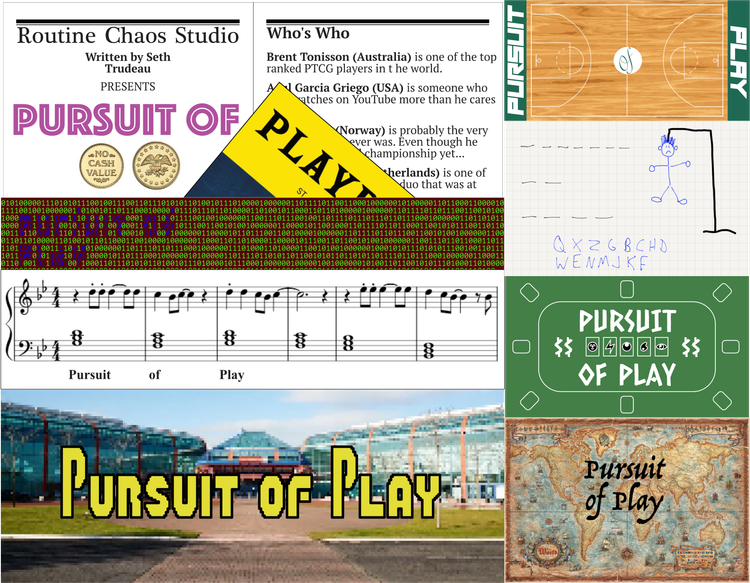

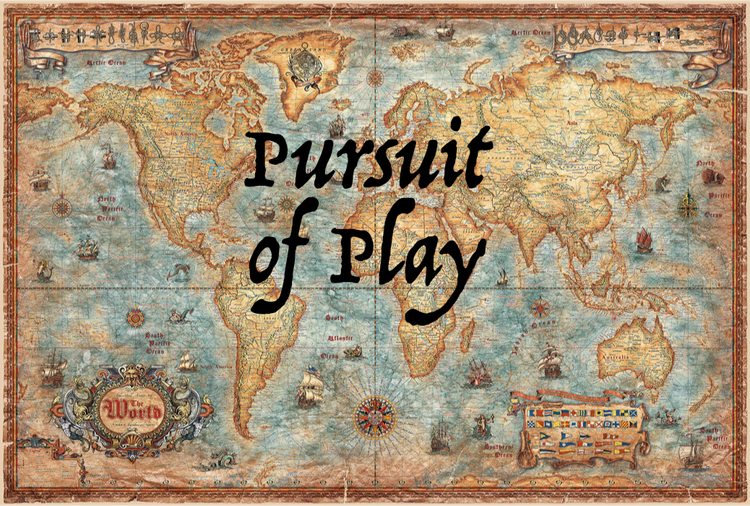
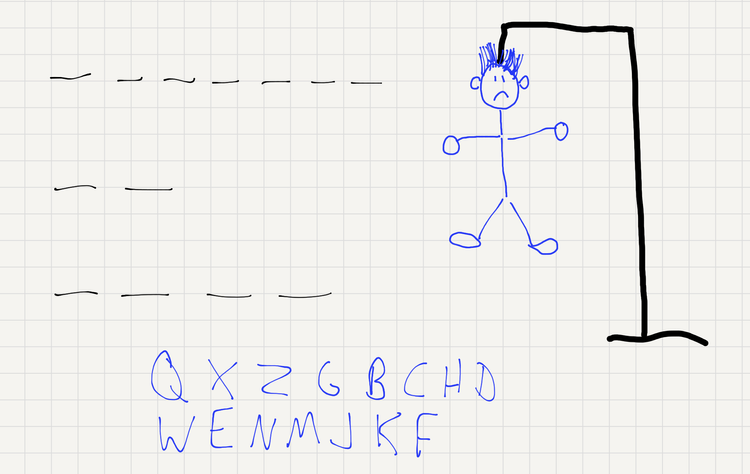
Member discussion